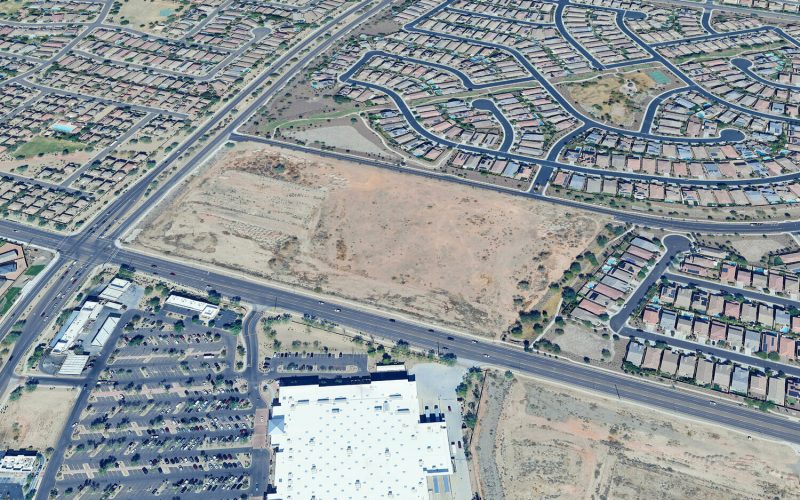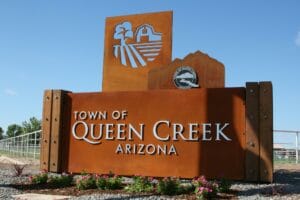Touts the Yoga Deregulation Bill run by Rose Law Group lobbyist Tom Galvin and Evan Bolick last session.
By Jeremy Duda | Arizona Capitol Times
In his third State of the State address, Gov. Doug Ducey laid out an ambitious and potentially pricey agenda that left lawmakers on both sides of the aisle nodding in approval and asking the same question: How is the state going to pay for all this?
Ducey’s agenda for the 2017 session included increased school funding, teacher salary raises, tax cuts, and even free education for Arizonans to become teachers.

Meanwhile, the Joint Legislative Budget Committee estimates that the state will have only $24 million for new spending in fiscal year 2018, though the Ducey administration has indicated that the governor’s budget expects that number to be higher.
Related: Arizona Democrats want special sales tax for education extended
Missing from Ducey’s speech is exactly how he expects to pay for his proposals. Those details will come on Friday, when he releases his executive budget plan.
For now, Ducey laid out an ambitious agenda that focused heavily on K-12 education and aiding vulnerable Arizonans such as low-income students, people living in poverty and former prisoners who are reentering society.
“Our economy is growing, our schools are improving, and our citizens are succeeding. But now is not the time to be content, or complacent, because the next generation of Arizonans, especially those facing challenges and hardships, are counting on us to rise to the occasion and do everything in our power to create boundless opportunity in the state of Arizona,” Ducey said.
Ducey devoted the largest segment of his speech, which was notably longer than his previous two State of the State addresses, to K-12 education. Since the passage of Proposition 123, a $3.5-billion, 10-year K-12 funding plan, people have frequently asked what the proverbial steps four, five and six would be. In his speech, he laid more than a dozen additional steps to follow.
The governor said his budget will include increased funding for schools, above and beyond the extra money required by state law to compensate for inflation. And he said he would continue to provide new funding every year for duration of his tenure as governor.
“Now, I’m not promising a money tree. I can’t. There’s no pot of gold or cash hiding under a seat cushion. And unlike Washington, we don’t print money, and we won’t raise taxes,” Ducey said. “But when we do have available resources, like we do this year, the bulk of those dollars will go to public education.”
Perhaps the biggest applause line of the speech was Ducey’s pledge to give teachers a permanent salary hike. The pay raises, he said, would go above and beyond any increases teachers received as a result of Proposition 123, bonding or budget overrides.
Ducey pitched other policies that he said would reward teachers and entice people into the profession. He proposed a $1,000 signing bonus for people who volunteer to teach at low-income schools, and an Arizona Teachers’ Academy that would train new teachers, free of charge, as a way to reduce student debt. If people commit to becoming teachers, Ducey said, their education will be paid for, jobs will be waiting for them and they will be debt-free.
Furthermore, Ducey adopted a proposal that was poised to become a major issue in the 2017 session: full-day kindergarten. Ducey said his budget would include money for Arizona’s lowest-income schools to start or expand kindergarten programs. Full-day kindergarten advocates have proposed such a step as the first part of a phased-in plan that would make kindergarten a full grade at all schools in the state.
There was a notable omission from Ducey’s speech that’s likely to further eat up much of whatever surplus the state has. In November, voters approved an increase in the state’s minimum wage – first to $10 an hour, which will ratchet up to $12 in 2020 – and policymakers say that will necessitate a hike in wages for state-contracted service providers who care for the elderly and the developmentally disabled. The governor’s budget office estimates the cost at $21 million.
Republicans lawmakers lauded the speech, but questioned how the state would pay for Ducey’s plans.
Sen. Debbie Lesko, who chairs the Senate Appropriations Committee, said she was happy to hear Ducey’s focus on teacher salaries and classroom spending.
“I think they’re great priorities and I think that they’re very good efforts. And now we just have to make sure that we can afford them and keep a balanced budget,” said Lesko, a Peoria Republican.
Senate President Steve Yarbrough, R-Chandler, said Ducey’s speech gave the Legislature “a lot of big tasks” for the new session. He acknowledged that the governor’s proposals seemed to encompass more than $24 million in new spending, and said he hopes Ducey’s budget is correct in assuming a larger surplus than JLBC expects.
“Just hope the revenue is there so we can do as much of it as possible,” the Senate president said.
House Speaker J.D. Mesnard said he especially appreciated the governor’s focus on education. Mesnard said there may be other funds or “efficiencies” that will help pay for the proposals.
“Obviously we’ll be looking at some of the proposals, what the dollars are,” said Mesnard, R-Chandler. “What I heard was an outline of priorities that most of us share.”
Democratic lawmakers as well were left wondering how Ducey would pay for his plans, even while they supported many of his proposals.
“There were a lot of promises to fund a lot of programs, education programs. The devil’s in the details. And I’m extremely anxious to see how he proposes to do that, because we’re talking about a surplus of $24 million,” said House Minority Leader Rebecca Rios. “He’s promising additional tax cuts. He’s promising no tax increases. So that math just doesn’t add up.”
Sen. Katie Hobbs, the Senate minority leader, said $24 million doesn’t even seem like enough to give teachers a significant pay raise. The Phoenix Democrat said she’s concerned that the money will come from cuts to other state programs.
“I like the steps he talked about. I think it’s pretty ambitious if he’s not going to look at additional revenue. We’ll see what his budget looks like on Friday,” she said.
While some were taken aback by the likely price tag of the fiscally cautious governor’s agenda, much of the speech was vintage Ducey, such as his digs at California and his praise of innovative companies such as Uber.
The governor pledged to continue the efforts he began last year when he pushed legislation that eliminated occupational licensing requirements for a handful of professions. And he proposed that the state waive licensing fees for people who are living in poverty. He urged the business community to help his administration find unnecessary and burdensome regulations that he can scrap, saying he hopes to eliminate 500 regulations this year.
Ducey proposed doubling the time in which Arizonans can receive cash payments under the Temporary Assistance for Needy Families program from 12 to 24 months if they’re actively seeking employment. In 2015, Ducey and lawmakers halved access to the federal welfare program, restricting low-income Arizonans to a lowest-in-the-nation 12-month cap. But in his State of the State, the governor called TANF “a bridge out of poverty and into a better life.”
Among the vulnerable populations that Ducey focused on were prisoners who are re-entering society after serving their sentences. The governor announced that he’d signed an executive order giving inmates access to Vivitrol, which he called a “miracle drug” that helps treat opiate and alcohol addiction. Ducey said it would help improve released inmates’ chances of success after they’ve served their sentences.
Ducey also proposed a joint effort between the Governor’s Office, faith-based groups and nonprofit organizations that help released inmates transition back into society. And he said the state will put employment centers in its prisons to help them find employment in the outside world.








